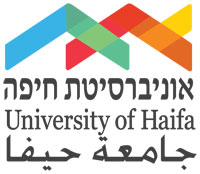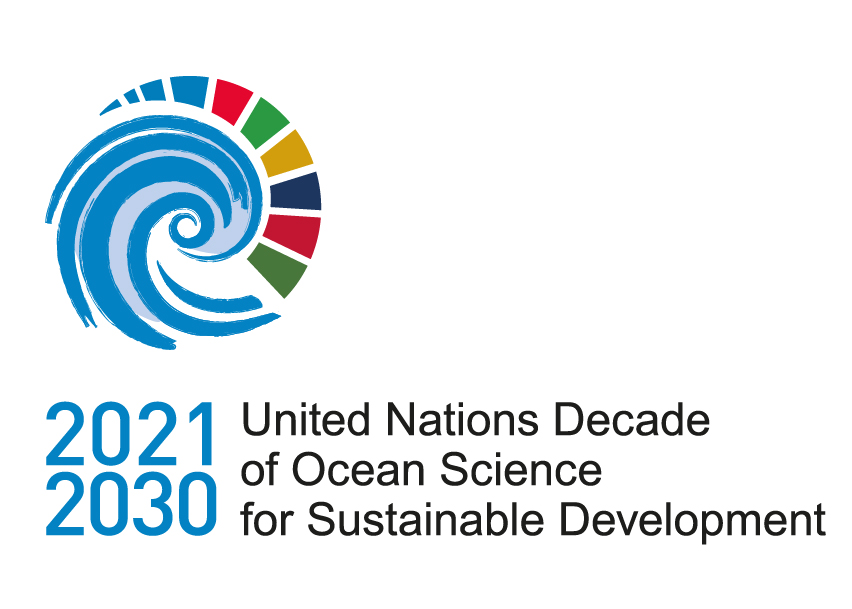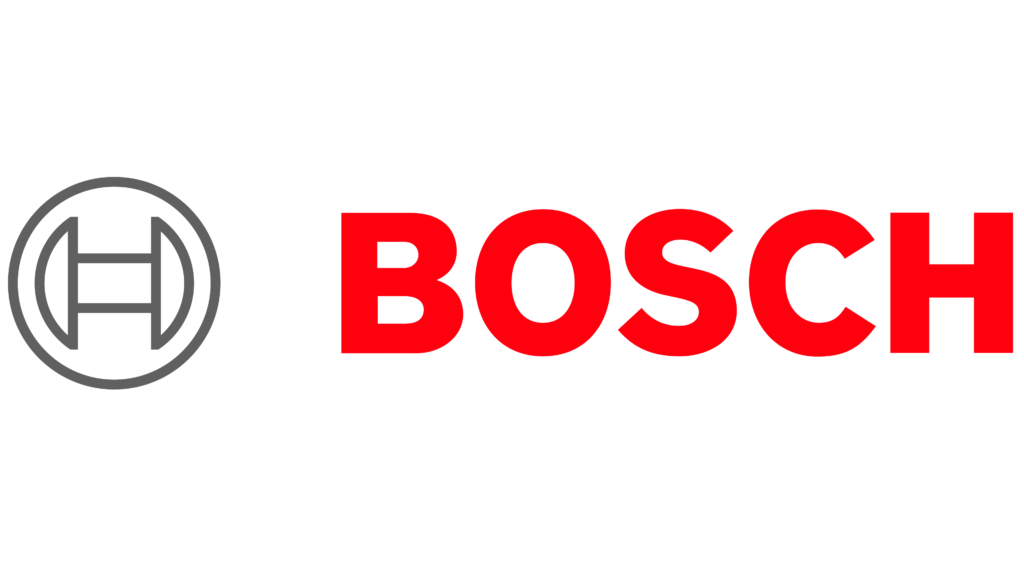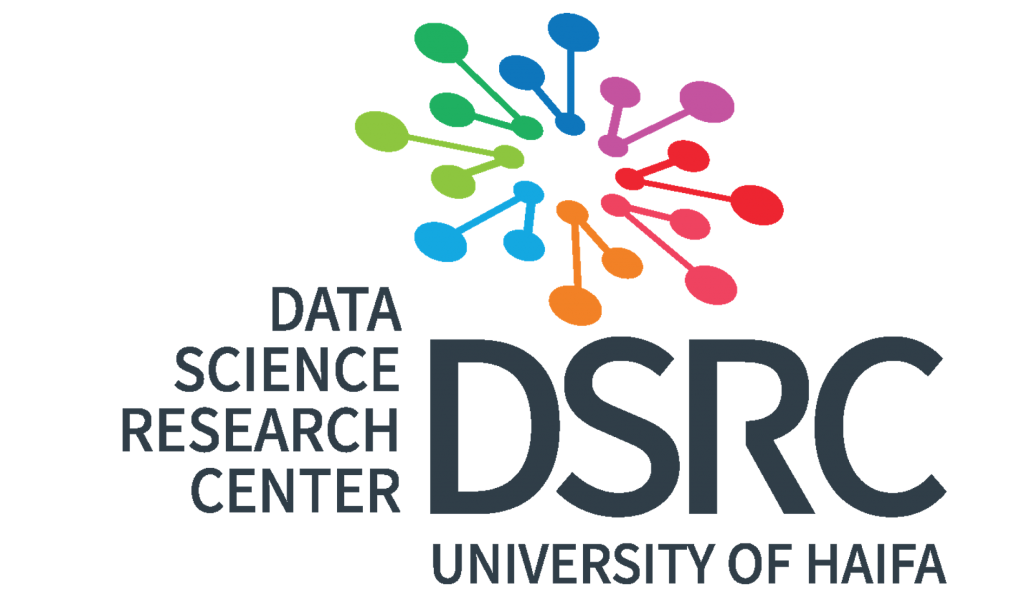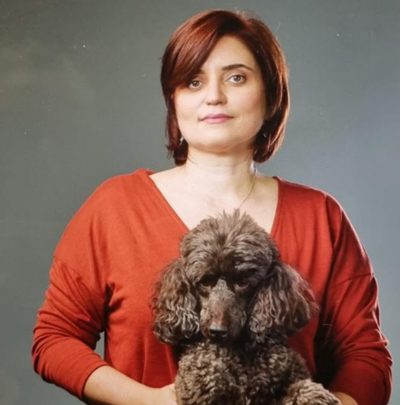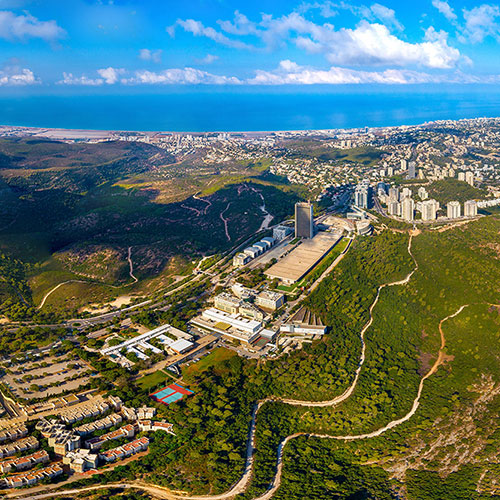SeaAI
Artificial Intelligence and Sea
20.6.2023
10TH HAIFA CONFERENCE ON MARINE SCIENCES
The 10th edition of the Haifa conference on marine sciences will take place (in-person) on 20th of June 2023 with the theme of: SeaAI: Artificial Intelligence and Sea. SeaAI is intended to provide a forum for research scientists, engineers, and practitioners throughout the world to present their research findings, ideas, and applications in the areas of Artificial Intelligence and Sea. SeaAI will include keynote speeches and invited presentations by renowned scientists and engineers. SeaAI exhibit area will provide companies and other organizations with an opportunity to display and promote products, services, equipment, books, journals, publications, and/or other items to attendees from around the world.
Abstract submission
– Abstract submission for SeaAI is now closed –
SeaAI will be an in-person conference, and it is expected that each abstract/poster will be presented by the main author or one of the co-authors.
The Call for Papers is open to abstracts in the following categories:
- Regular Technical Track: Oral presentation open to all authors.
- Student Presentation Competition: Students may submit abstracts to the Student Presentation Competition. This competition is open to any full-time student in an accredited programme. The student must be listed as the lead and corresponding author.
- Regular Poster Session: The General Poster session is open as a request option to all authors (student and non-student). Authors participating in the poster session will present the poster on-site during a dedicated live session at the conference
- Student Poster Competition: Students may submit abstracts to the Student Poster Competition. If an abstract is chosen, the student will then submit a poster which will be presented during the conference in the student poster section of the exhibit hall. This competition is open to any full-time student in an accredited programme. The student must be listed as the lead and corresponding author.
If you interested in organizing a special session on a particular topic, please contact us via email SeaAI@univ.haifa.ac.il.
Review Criteria: Proposals will be reviewed by the conference committee based on relevance of topic, novelty, and quality of presentation.
Submission Guidelines:
Before you start the online submission, please prepare the following information. Abstracts must be submitted in English via the online submission form link.
All abstracts must be submitted in PDF format, and must be created by the author (co-authors are allowed).
Please include at the top of the abstract the names of all authors and their affiliations, and the title of the abstract.
Abstract Title – brief descriptive title of maximum 15 words. Use Title case (Capitalize each word in the title).
Abstract Body – Maximum 300 words; One A4 page (including references and figures)
* 14pt Times New Roman for title
* 12pt Times New Roman for affiliations and main text
Important Dates:
February 10, 2023 Special Sessions Proposals Deadline
March 25, 2023 Abstract Submission Deadline
April 24, 2023 Notification of Abstract Acceptance
May 20, 2023 Submission of Final Abstracts
Registration
Registration fee:
• Regular Early registration until 10/5/23 – 120 NIS
• Students Early registration until 10/5/23 – 30 NIS
• Regular Full price – 200 NIS
• Student’s Full price – 60 NIS
Keynote Speakers
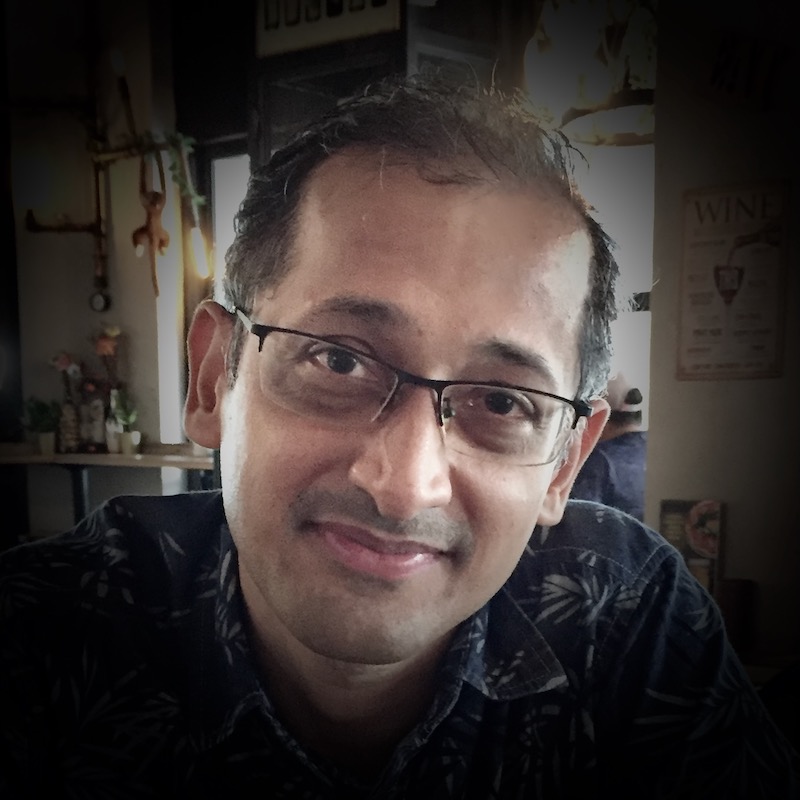
Mandar Chitre
Mandar Chitre is currently the Head of the Acoustic Research Laboratory (ARL) at the Tropical Marine Science Institute (TMSI) in Singapore. He is also an Associate Professor at the Department of Electrical & Computer Engineering (ECE) of the National University of Singapore (NUS). He also serves as the Editor-in-Chief for the IEEE Journal of Oceanic Engineering. Mandar’s research interests include underwater acoustic communications & networking, ocean acoustics, signal processing & machine learning, and collaborative underwater robotics. He was awarded the Distinguished Technical Achievement Award by the IEEE Oceanic Engineering Society in 2020 for his work on underwater communications & networking. Apart from his academic interests, Mandar has a strong passion for computing & software development, and considers theoretical physics a hobby. He also enjoys photography, scuba diving, cold places, seriously hot chilies, good wine, strange beers, and a game of contract bridge.
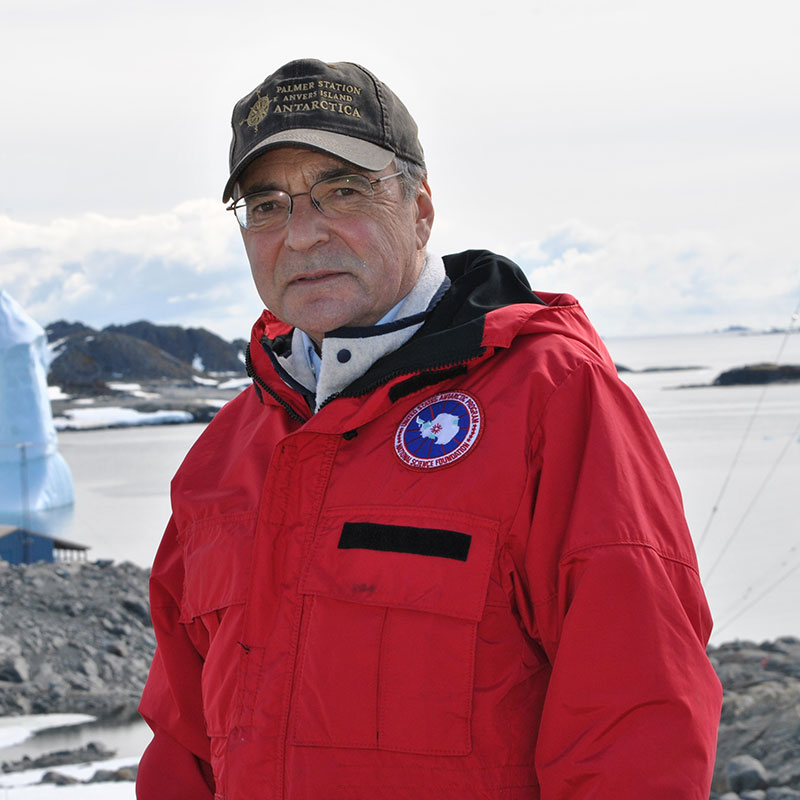
Paul G. Falkowski
Bennett Smith Professor in Business and Natural Resources/Distinguished Professor Department of Earth and Planetary Sciences/Founding Director of Rutgers Energy Institute, Rutgers The State University of New Jersey.
Professor Paul Falkowski’ scientific interests include evolution of the Earth systems, paleoecology, photosynthesis, biophysics, biogeochemical cycles, and symbiosis. Professor Falkowski earned his B.S. and M.Sc. degrees from the City College of the City University of New York and his Ph.D. from the University of British Columbia. After a post-doctoral fellowship at the University of Rhode Island, he joined Brookhaven National Laboratory in 1976 as a scientist in the newly formed Oceanographic Sciences Division. He served as head of the division from 1986 to 1991 and deputy chair in the Department of Applied Science from 1991-1995, responsible for the development and oversight of all environmental science programs. In 1996, he was appointed as the Cecil and Ida Green Distinguished Professor at the University of British Columbia. He moved to Rutgers University in 1998. He received a John Simon Guggenheim Fellowship in 1992; the Huntsman Medal in 1998; the Hutchinson Prize in 2000; the Vernadsky medal from the European Geosciences Union in 2007; the Ecology Institute Prize in 2010; the Albert 1st Medal in 2011; and the Tyler Prize for Environmental Achievement in 2018. In 2001, he was elected a Fellow of the American Geophysical Union; in 2002, he was elected to the American Academy of Arts and Sciences; in 2007, he was elected to the United States National Academy of Sciences; in 2008, he was elected as a Fellow of the American Academy of Microbiology; in 2016, he was elected as section chair for Environmental Sciences and Ecology in the United States National Academy of Sciences.
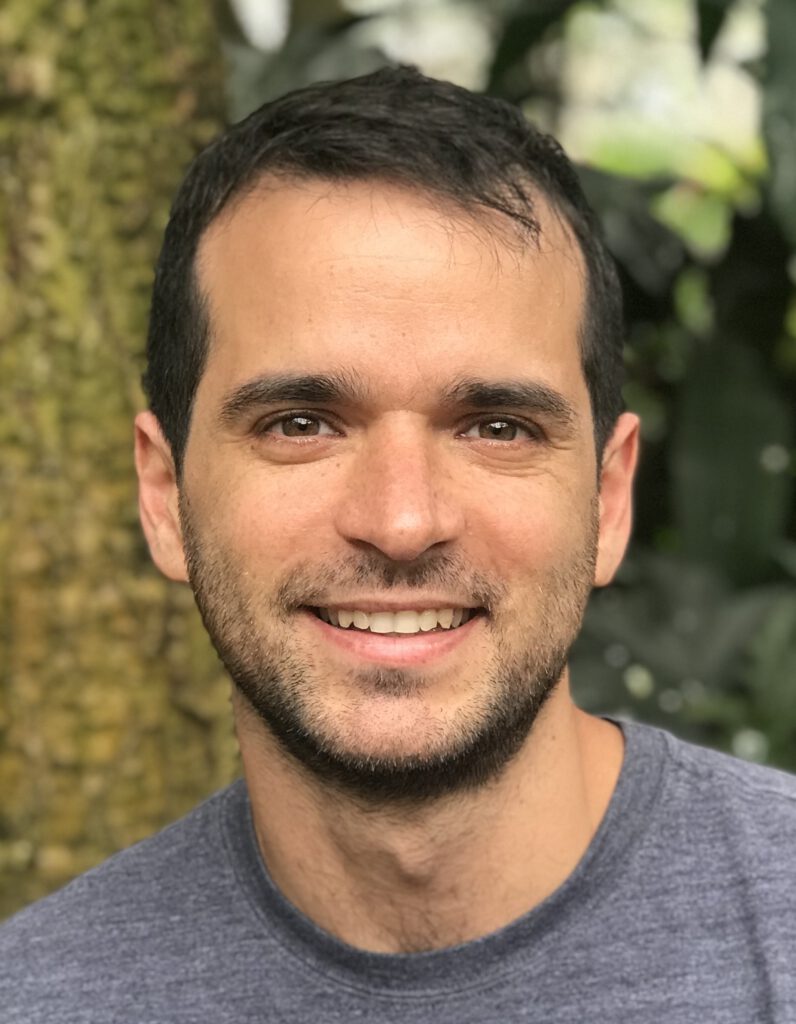
Yaniv Romano
Yaniv Romano is an assistant professor in the Departments of Electrical Engineering and of Computer Science at the Technion—Israel Institute of Technology. Before that, he was a postdoctoral scholar in the Department of Statistics at Stanford University, advised by Prof. Emmanuel Candès. Yaniv earned his Ph.D. and M.Sc. degrees in 2017 from the Department of Electrical Engineering at the Technion—Israel Institute of Technology, under the supervision of Prof. Michael Elad. His research spans the theory and practice of machine learning, statistics, and signal and image processing. The super-resolution technology he invented together with Dr. Peyman Milanfar is being used in Google’s flagship products, increasing the quality of billions of images and bringing significant bandwidth savings. The uncertainty quantification technique he developed with Prof. Emmanuel Candes has been used by The Washington Post to estimate outstanding votes for the 2020 U.S. presidential election.
Yaniv is a recipient of several fellowships and awards. These include the Zuckerman Postdoctoral Fellowship, ISEF Postdoctoral Fellowship, Viterbi Postdoctoral Fellowship (Technion), Koret Postdoctoral Scholarship (Stanford University), Alon Scholarship, and Leaders in Science and Technology Career Advancement Chair (CAC), Technion. Yaniv was awarded the 2020 SIAG/IS Early Career Prize, the 2020 Sheila Samson Prime Minister’s Prize for Global Innovation in Smart Mobility and Alternative Fuels for Transportation, and the 2021 IEEE Signal Processing Society Best Paper Award.
Program
Sponsorship & Exhibition
Exhibiting at SeaAI Conference provides access to a large and diverse local international audience. SeaAI Conference offers excellent sponsorship and exhibition packages suitable for any sized budget providing you with great opportunities to display your company in front leading scientists, technologists, engineers, and government representatives.
Why Exhibit/ become a sponsor ?
• Meet potential clients and develop your network
• Promote your latest innovations and concepts in a supportive environment
• Enhanced brand exposure in SeaAI Conference website and media
Organizing Committee
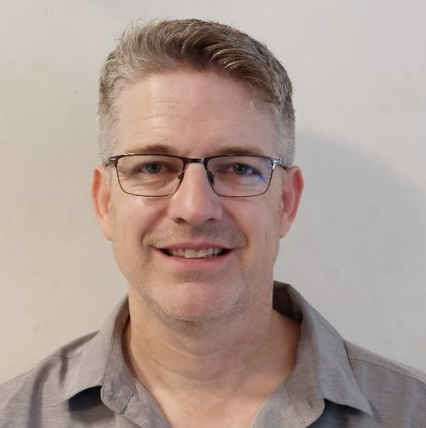
Itzik Klein
Itzik Klein received the B.Sc. and M.Sc. degrees in Aerospace Engineering from the Technion – Israel Institute of Technology, Haifa, Israel, in 2004 and 2007, respectively, and a Ph.D. degree in Geo-information Engineering from the Technion – Israel Institute of Technology, in 2011. He is currently an Assistant Professor, heading the Autonomous Navigation and Sensor Fusion Lab, at the Hatter Department of Marine Technologies, The Leon H. Charney School of Marine Sciences, University of Haifa. He is an IEEE Senior Member and member of the IEEE journal of Indoor and Seamless Positioning and Navigation (J-ISPIN) Editorial Board. His research interests lie in the intersection of artificial intelligence, navigation, and sensor fusion.
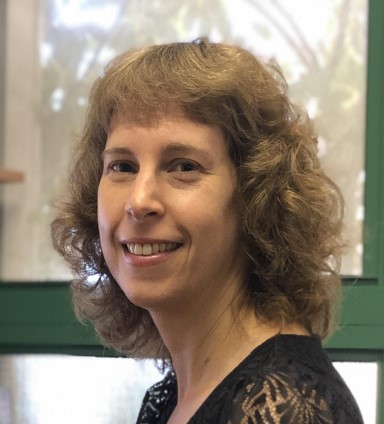
Mor Peleg
Mor Peleg holds a BSc and MSc degrees in biology and PhD (1999) in Information Systems, from the Technion and postdoctoral studies (2003) at Stanford’s Medical Informatics program. She is Full Professor at the Department of Information Systems, University of Haifa, which she joined in 2003, Head of the University of Haifa’s Data Science Center, and former Chair of the Department of Information Systems and of the BSc in Data Science program. She is the Editor-inChief of the Journal of Biomedical Informatics and is Fellow of the American College of Medical Informatics and of the International Academy of Health Sciences Informatics. Prof. Peleg is internationally renowned in the area of clinical decision support, with a focus on using ontologies to integrate patient data with clinical knowledge. She led the large-scale European project MobiGuide, providing sensor-monitoring and evidence-based personalized decision-support to patients any time everywhere. Her current research exploits AI and Big Data for a new model of cancer care (https://capable-project.eu/).
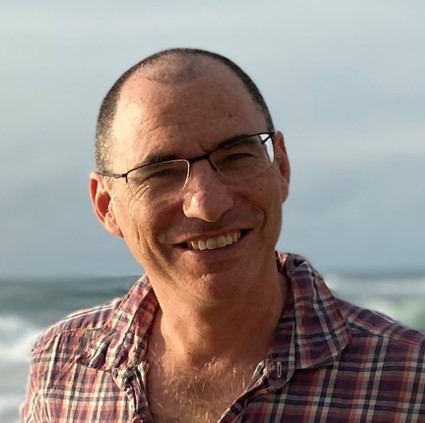
Yoav Lehahn
Yoav Lehahn is a researcher at the Charney School of Marine Sciences in the University of Haifa. His work is aimed at achieving cross-disciplinary understanding of marine system, combining in-situ and remote sensing data from multiple sources. Currently, his research is focused on development and implementation of Lagrangian methods for analysis and interpretation satellite imagery; facilitating the utilization of drone technology as an oceanographic research tool; and improving the process of ocean data integration, in order to promote data-based oceanic research.
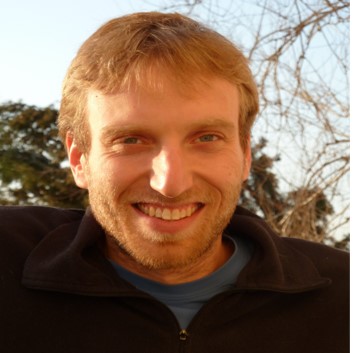
Nir Shlezinger
Nir Shlezinger is an assistant professor in the School of Electrical and Computer Engineering in Ben-Gurion University, Israel. He received his B.Sc., M.Sc., and Ph.D. degrees in 2011, 2013, and 2017, respectively, from Ben-Gurion University, Israel, all in electrical and computer engineering. From 2017 to 2019 he was a postdoctoral researcher in the Technion, and from 2019 to 2020 he was a postdoctoral researcher in Weizmann Institute of Science, where he was awarded the FGS prize for outstanding achievements in postdoctoral research. His research interests lie in the intersection of signal processing, machine learning, communications, and information theory
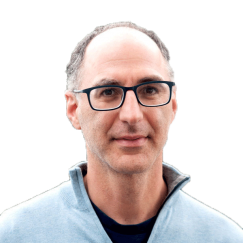
Tamir Hazan
Tamir Hazan received his PhD from the Hebrew University of Jerusalem (2010) and he is currently an associat professor at Technion. Tamir Hazan’s research describes efficient methods for reasoning in complex settings, using multi modal attention models or generative learning techniques. Theoretically, Tamir’s research considers the role of gradients in generalization and explainability using theoretic-information tools about non-negative functions.
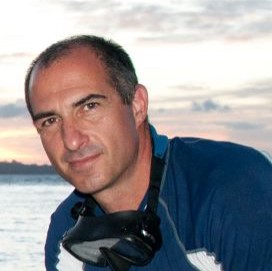
Dan Tchernov
Prof. Dan Tchernov began his faculty-level career as the director of the Interuniversity Institute for Marine Sciences (IUI-Eilat, Asst. Professor at Hebrew University, 2004-2009). During this period he turned a relatively stagnant marine station into an active and up-and-coming facility including orchestrating the construction and delivery of the first research vessel placed in the Red Sea by Israel as well as Israel’s first technical scientific diving center. From there, he founded the Marine Biology Department at the Leon H. Charney School of Marine Sciences University of Haifa (2009 -2017) and founded the M. Kahn Marine Research Station (opened 2016). Professor Tchernov is currently the scientific director of the M. Kahn Marine Research Station that executes marine operations such as routine deep CCR tri-mix exploration and support dives, shark and large fish tagging, ROV operations in the eastern Mediterranean and other underwater observatory servicing
Venue: University of Haifa
Address: 199 Aba Khoushy Ave., Mount Carmel, Haifa, Israel
The SeaAI Conference is hosted by the Leon Charney School of Marine Sciences, University of Haifa, Israel.
University of Haifa is the most diverse research institution of higher education in Israel. It’s unique location – on the mountain, in the city and by the sea – inspires innovative ideas and solutions that address pressing global issues, including climate change, inequality, aging and the future of humans and technology.
The University is academic home to more than 17,000 students and faculty members from different ethnic, religious and socioeconomic backgrounds. Here, Jews, Muslims, Christians, Druze, IDF officers and security personnel come together to study, research and learn.
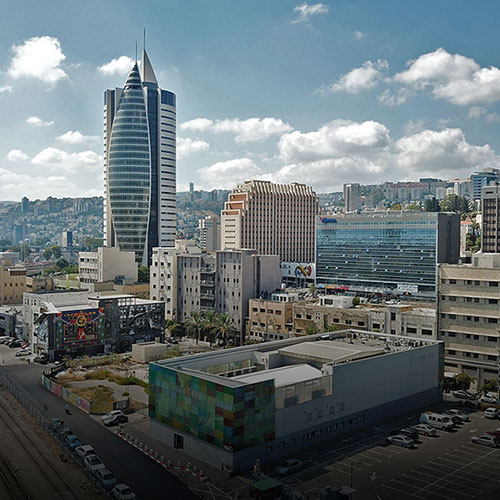
The university is located in the beautiful city of Haifa, the capital of Israel’s northern region and Israel’s third largest city.
Hecht Museum of Archeology and Art, University of Haifa
The Hecht Museum, located at the top of the Carmel Mountain on the University of Haifa campus, is without doubt one of the most interesting and impressing museums in Israel. The museum is dedicated to the history and archeology of ancient Israel and to contemporary art.
The archeology exhibits include a vast collection of local coins, rare finds from the Temple Mount in Jerusalem, a mosaic floor of a synagogue from Beit She’an and more; Also on display the ship from Maagan Michael, a 2,400-year-old wooden Greek ship which has been miraculously preserved.The art wing of the museum features Dr. Hecht’s art collection focusing on Impressionism and Jewish art. In the collection works by the artists Van Gogh, Modigliani, Monet, Pissarro, Soutine, Robin, Struck and others.
Visitor information
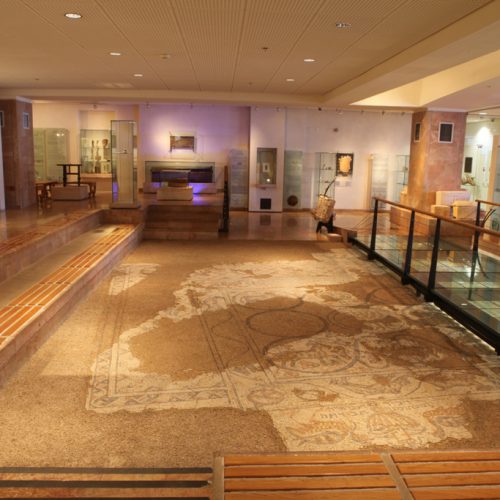
Stay tuned for more information: SeaAI@univ.haifa.ac.il
Updates coming soon
יצירת קשר
